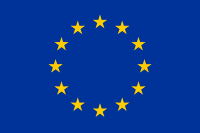Observatory Online Co-Creation Workshop
Developing spaces for digital collaboration and sharing
Sign up now for the MOOC on digital transition strategies for cultural heritage institutions
The inDICEs project is delighted to announce a new Massive Open Online Course (MOOC) which aims to support cultural heritage professionals at all stages of their careers to develop digital strategies. The MOOC is free to join and open to all - sign up today!

New questions for the cultural heritage sector
The fast advance of new digital technologies and, more recently, the COVID-19 pandemic, have encouraged many cultural heritage institutions to make their collections digitally accessible and reusable. In the last two decades, millions of objects - artworks, documents, and media - have found their way into the digital realm.
However, the same advance of new technologies has prompted changes in digitisation processes and raises questions about how to manage digital heritage, its reuse, copyright and the way audiences interact with it. How can cultural heritage institutions keep up with the latest digital technologies and trends? How can they organise and develop an impactful digital workflow? How can digital collections enhance audience engagement and participation? How can cultural heritage institutions manage, apply and make the users aware of intellectual property rights? How can cultural heritage institutions manage, apply and make the users aware of intellectual property rights?
About the MOOC
These and a plethora of other questions are addressed in a new, free Massive Open Online Course (MOOC), ‘Developing digital transition strategies for cultural heritage institutions’. The MOOC is organised by the inDICEs project, which has received funding from the European Union for 2020-2022 under the Horizon 2020 programme. A MOOC allows large numbers of participants to learn new skills and develop their knowledge through online teaching.
‘Developing digital transition strategies for cultural heritage institutions’ is in English and will be hosted by KU Leuven via the edX platform. It is aimed at cultural heritage professionals, students, policy makers, and anybody with an interest in discovering how to tackle the challenges of digital transformation. Guided by experts from varied fields (from cultural economics to sociology, from communication to intellectual property rights), participants will learn how to design, assess, and improve digital transformation strategies. The course will provide insights and tools and framework for assessing the impact that cultural heritage institutions’ mission and activities can have thanks to new technologies.
How the MOOC works
The course started in September 2022 onwards and covers six modules.
- Digital Transformation & Self-Assessment is an introductory module partly focused on the concept and importance of digital transformation in the GLAM sector, and partly on self-assessment and monitoring strategies.
- Digital trends and Culture 3.0 examines the main transitions of the web, from its use as an information source (web 1.0) to the adoption of social and interactive elements (web 2.0). It also explores the concept of Culture 3.0 in which active participation is essential, analysing it in correlation with societal challenges. Different domains and types of impact of digital cultural participation, as well as trend watching practices are focal points.
- Empowering IPR for the commons explores how cultural heritage institutions can make reuse of digital content clear from a legal perspective. How can institutions navigate EU legislation with regards to digital cultural collections and what are the fundamentals to understand when it comes to intellectual property rights?
- Strategic skills, collaboration & organisation growth discusses how participation in networks can increase organisational capacity and help to optimise the impact of cultural heritage institutions.
- Impact assessment introduces good practices, tools and methodologies to assess whether a strategy is working or needs to be refined or redirected. In this module, special attention is given to the Europeana Impact Playbook and its application.
- Approaching technological innovation investigates the notion of ‘innovation’. It then focuses on what that means for designing a comprehensive digital strategy, including ways of reaching out to audiences via online communication channels.
- Each module is enriched with lectures, interviews with experts, and readings. Learners will be encouraged to apply their newly acquired knowledge and set their critical thinking skills in motion through multiple choice quizzes, and reflection assignments. They will also have the opportunity to interact, discuss and share experiences and thoughts with the other students.
The MOOC is instructor-paced and will run for 8 weeks. Participants will be able to discover a module per week during the first six weeks, and dedicate the remaining time to attempt the final exam if they wish so, or to revisit once again the previous learning activities. Learners are expected to dedicate three - four hours to each module.
All the material offered by this edX course is freely accessible. However, participants will always have the opportunity to receive an official certificate for a fee, upon passing a final exam.






Comment details
You are seeing a single comment
View all comments
Pretty component of content. I simply stumbled upon your blog and in accession capital to say that I acquire actually enjoyed account your weblog posts. Anyway I will be subscribing on your augment or even I achievement you get entry to constantly rapidly.
https://renewbuy.us
https://cellucare-pro.com
https://quietumplius.com
https://glucostrust.com/
https://naganotonic-buy.com
https://jointgeinesis.com
https://renew-slim.com
https://javaburnsbuy.com
https://prodentmim.com
https://neotonicis.com
https://provadient.com
https://sugardefenrder.com
https://denticore-oral.com
https://vitalsbay.com
Loading comments ...